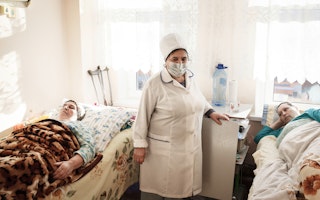The World Health Organization estimates that as many as 185 million people, or 3 percent of the world’s population, are infected with the hepatitis C virus. Though it is curable, the vast majority of people living with hepatitis C reside in low- and middle-income countries where treatment is virtually inaccessible.
The main medicine used in the current standard of care—Pegylated Interferon-alfa (Peg-IFN)—can cost as much as $18,000 USD in these countries for a 48-week course of treatment. For those who cannot afford it, this price tag may mean death.
In this new report, Hepatitis C Treatment: Price, Profits, and Barriers to Access, we examine the difference in price of a 48-week course of hepatitis C treatment in low- and middle-income countries, and detail breakthroughs that have been made in countries like Egypt and Thailand to negotiate lower prices and increase access to this lifesaving medicine.
Read more
Voices
To End Hepatitis C, Patients Must Come Before Profits

Affordable access to life-saving medicines is a human right. Only when governments and pharmaceutical companies commit to making treatment available at fair prices will we close the hepatitis C treatment gap.
Vaccine Justice
Q&A: Africa’s Fight for Vaccine Equity

As the pandemic enters its third year, African Alliance founder Tian Johnson shares reflections on how to make progress in the push for vaccine equity and what African civil society organizations are asking for now.
Dignified End-of-Life Care
Governments Should Follow Moldova’s Lead and Ensure Universal Access to Palliative Care

Over decades, Open Society’s funding for palliative care has improved access globally. However, while philanthropy plays a large role in this sector, palliative care must ultimately be publicly funded and universally available.
